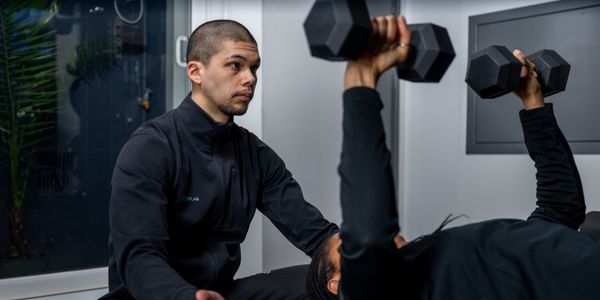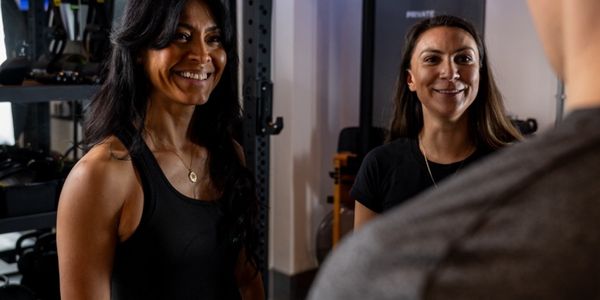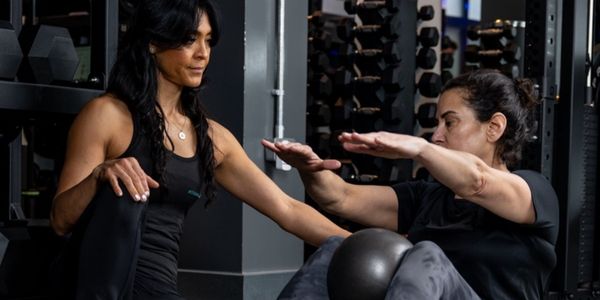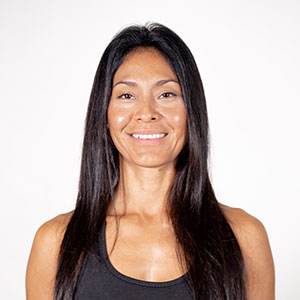When you’re younger, balance, posture and flexibility are things you don’t give a second thought. You stand tall, you move easily, and your body does what you need it to without complaint. Then, gradually, you might notice the cracks — a stiff back, less freedom in your shoulders, or the occasional stumble.
That’s when it hits: these “basics” are actually the foundations of a body that feels and performs well. Ignore them, and daily life gets harder. Focus on them, and everything — from lifting weights to walking up stairs — feels smoother, safer, and more confident.
Strength Training: The Overlooked Secret to Better Movement
When most people think about strength training, they picture big muscles and gym mirrors. In reality, the real magic happens in your core and stabilising muscles. Strength training builds resilience, steadies your frame, and keeps your joints supported — all of which directly improve balance, posture, and mobility.

The research is clear: people who consistently train with weights enjoy greater comfort in movement, reduced risk of falls, and fewer injuries. Even two sessions a week can outperform countless hours of unsupervised stretching or cardio when it comes to improving how your body moves.
Why It’s About More Than Just “Exercise”
Of course, you can try and chip away at these issues on your own with yoga videos or stretching routines. But here’s the catch: progress in balance, posture, and flexibility isn’t about random effort — it’s about structured, progressive training.
That’s where expert coaching makes the difference. With the right plan, you’ll not only move better now but also protect your long-term mobility. Done properly, training builds strength around your joints, maintains bone density, and keeps you agile — the kind of benefits that last decades, not weeks.
What the Science Says
It’s not just opinion — research consistently shows how important balance, posture, and flexibility are for long-term health. A few highlights:
Falls and stability: According to the NHS, one in three adults over 65 will have at least one fall a year. Regular strength and balance training can cut that risk by up to 30%.
Posture and pain: A 2019 study published in the Journal of Physical Therapy Science found that targeted strength training significantly reduced lower back pain and improved posture in adults within 12 weeks.
Flexibility and mobility: Research from the American College of Sports Medicine shows that improved flexibility directly correlates with greater independence and quality of life in older populations.
Bone and joint health: Weight-bearing strength exercises are proven to slow the decline of bone density and support joint alignment — making daily movement smoother and less painful.
In other words, this isn’t just about “feeling a bit looser.” Training for balance, posture, and flexibility is strongly linked with fewer injuries, reduced pain, and better health outcomes across the board.

For anyone who wants to dive deeper, there are excellent resources from NHS, Harvard Health, and PubMed that highlight the research behind these benefits.
Everyday Wins You’ll Notice
Improving balance, posture and flexibility isn’t just a “health box ticked.” It shows up in the way you live.
Think about:
Feeling steadier when you step off a curb or climb the stairs.
Sitting comfortably at your desk without the usual aches.
Playing sport or running around with your kids without stiffness slowing you down.
Moving with more confidence, whether you’re in the office, travelling, or just getting on with your day.
These are the kinds of “invisible” upgrades that compound over time — the ones you miss most when they’re gone.
Who Benefits the Most?
The truth is, everyone benefits from better balance, posture, and flexibility. Office workers who spend hours sitting gain relief from back and neck tension. Active people reduce their injury risk and perform better in sport. Parents find they’ve got the energy and movement quality to keep up with their kids. And yes — older adults find greater confidence in everyday activities and reduce their risk of falls.
No matter your starting point, improving these fundamentals pays off in ways that ripple into every part of life.
Common Myths About Balance, Posture and Flexibility
It’s easy to think these areas only matter later in life, but the truth is, poor posture and weak stabilising muscles affect people of all ages. Long hours at a desk, repetitive training habits, and even phone use can all contribute to problems in your 20s, 30s, and beyond.

Another misconception is that stretching alone will “fix” things. While stretching feels good and can play a role in improving flexibility, it doesn’t build the strength your body needs to maintain those improvements. Strength training is what locks those benefits in — and that’s why it’s such a powerful tool for long-term mobility and comfort.
The Fitness Lab Approach
At Fitness Lab, we see people of all ages and abilities reclaim their movement and confidence every week. The difference isn’t just the exercises — it’s the way they’re delivered. Our private studios are distraction-free, our programmes are built entirely around you, and your coach is focused 100% on your progress.
The result? You achieve in weeks what most people struggle to manage in months of doing it alone.
Where to Begin
If you’re reading this and thinking balance, posture, or flexibility might be slipping — the best step is the first one. It doesn’t need to be drastic. A couple of well-planned weekly sessions can transform the way you feel in daily life.
Outside the studio, even small changes make a difference. Standing up every hour at work, taking the stairs instead of the lift, or adding a five-minute mobility routine before bed all contribute to better balance and posture. The key is consistency — and if you combine those small daily habits with structured strength training, the results come quickly.
And if you’d like expert guidance, a coach who understands your body and your goals can make the process faster, safer, and far more effective.

